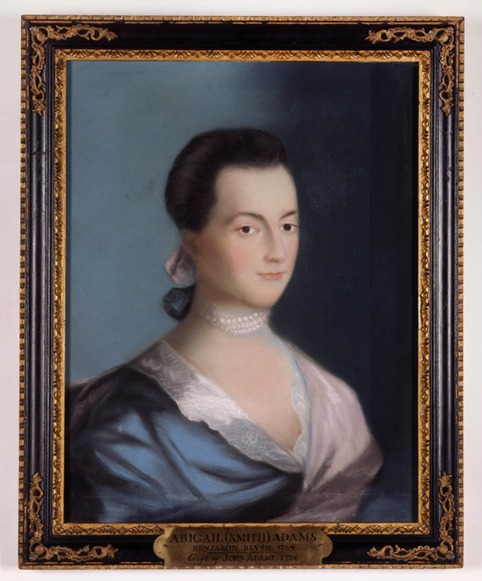International Day of Democracy
On September 15, the world observes the International Day of Democracy, a reminder that democracy is not a finished achievement but an ongoing process that requires vigilance, participation, and inclusion. While we often think of democracy’s founders as statesmen, soldiers, or legislators, the story of democracy is incomplete without acknowledging the women who, though legally excluded, shaped political thought and demanded that their voices be heard. Among them stands Abigail Adams (1744–1818), whose words and actions resonate powerfully on this day.
Abigail Adams is best remembered for her famous 1776 letter to her husband John Adams, then serving in the Continental Congress. As the colonies debated independence, Abigail urged him to “remember the ladies” in the new code of laws, warning that if women were not granted greater consideration, they would be “determined to foment a rebellion” against laws in which they had “no voice or representation” (Adams, 1776/1963) . Her appeal was revolutionary: in an era when women had no legal or political standing, she linked the colonists’ struggle for liberty with women’s claims for equality, exposing the contradictions at the heart of America’s democratic experiment.
Although John Adams famously responded with humor, dismissing her words as a “despotism of the petticoat,” Abigail’s letters reverberate as one of the earliest feminist interventions in modern democratic history. It demonstrated that the ideals of liberty and equality proclaimed in 1776 could not remain the property of a privileged few.
Beyond her role as an outspoken correspondent, Abigail actively shaped public opinion. As historians David S. Shields and Fredrika J. Teute have shown, she transformed the “Republican Court” into a venue where women could influence political culture, facilitate dialogue, and broker networks that reached newspapers and policymakers (Shields & Teute, 2015) . She was not merely a passive “first lady” but a political actor, circulating news, directing editors, and amplifying perspectives she considered vital for the young republic.
The breadth of her influence is clear in the extensive correspondence she maintained with John Adams and with other figures of her time. Unlike many of her contemporaries, who destroyed personal letters, Abigail preserved a written legacy that reveals her sharp political insight. Scholars note that these letters—witty, affectionate, and politically engaged—form one of the richest archives of early American political thought, allowing us to see how democratic ideals were debated and refined not only in legislative halls but also within households (Shuffelton, 2008) .
In the Adams–Jefferson correspondence of the early nineteenth century, Abigail appears again, engaging in thoughtful exchanges with Thomas Jefferson even after periods of political estrangement. Her ability to intervene in such dialogues underscores the ways in which women, though excluded from formal power, contributed to shaping the democratic culture of the new nation (Cappon, 1987/2025) .
What makes Abigail Adams especially relevant for today’s International Day of Democracy is the tension she embodied: she lived in a society that proclaimed freedom yet denied it to women, enslaved people, and many others. Her insistence that true liberty must be universal anticipates modern debates about the inclusiveness of democratic systems. Her voice reminds us that democracy is strongest when it expands—when those historically excluded are finally recognized as full participants.
Celebrating democracy on September 15 should therefore include remembering figures like Abigail Adams, who pressed against the boundaries of their time. She represents the countless women who sustained families during war, exchanged political ideas, and challenged the inequities that undercut democracy’s promise. Their contributions were not always acknowledged in official documents, but they were essential to nurturing a culture where democratic ideals could survive and grow.
As we face global challenges to democratic institutions today, Abigail’s warning from 1776 still echoes: no system can endure if it rests on exclusion. Democracy requires not only free elections and constitutional texts but also the commitment to hear every voice. To remember Abigail Adams is to remember that democracy is, at its core, a project of inclusion—and that its unfinished work belongs to us all.
References
- Adams, A. (1776/1963). Letter from Abigail Adams to John Adams, 31 March–5 April 1776. In L. H. Butterfield (Ed.), Adams Family Correspondence, Vol. 1. Cambridge, MA: Belknap Press of Harvard University Press. Massachusetts Historical Society. http://www.masshist.org/digitaladams/aea/cfm/doc.cfm?id=L17760331aa
- Cappon, L. J. (Ed.). (1987/2025). The Adams–Jefferson Letters: The Complete Correspondence Between Thomas Jefferson and Abigail and John Adams, Vol. II (1812–1826). Chapel Hill: University of North Carolina Press / Bard Digital Commons. https://digitalcommons.bard.edu/hapl_marginalia_all/635
- Shields, D. S., & Teute, F. J. (2015). The Court of Abigail Adams. Journal of the Early Republic, 35(2), 227–235. University of Pennsylvania Press. https://www.jstor.org/stable/24486730
- Shuffelton, F. (2008). Review of My Dearest Friend: Letters of Abigail and John Adams (M. A. Hogan & C. J. Taylor, Eds.). The New England Quarterly, 81(2), 350–352.
Harvard PhD, Full Professor of Sociology at the University of Barcelona, and Vicepresident of the International Sociological Association.

